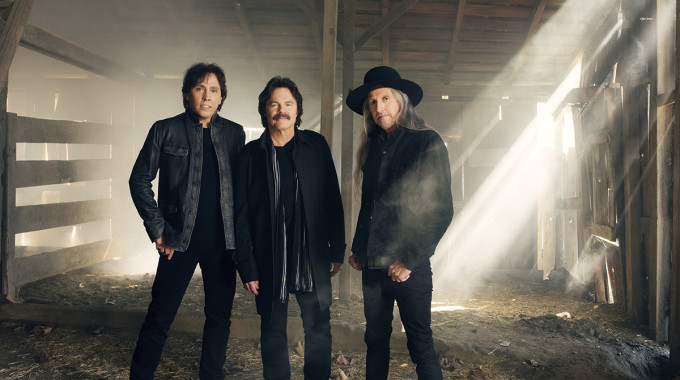
The Doobie Brothers
One of the most successful bands to come out of California in the ’70s, the Doobie Brothers’ history is one of success, breakups, hiccups, extensive touring, health issues and accidents, hits, leaves-of-absence, hits and more hits, comings and goings and, ultimately, reunion and triumph. Almost every significant Doobie Brother member has left and returned to this Grammy-Award-winning enterprise. Several band members have even been sidemen for Japanese megastar Eikichi Yazawa.
The Doobies continue their success with a 2016 tour (for tour dates head to their website here) including two founding members, the newbie from 1979 and returning keyboardist Bill Payne, who contributed the original piano to their hit “China Grove” in 1973, and returned as a band member in late 2015, having spent the intervening years with Little Feat.
Like their namesake, what goes around, comes around. Sometimes even more than once.
Patrick Simmons
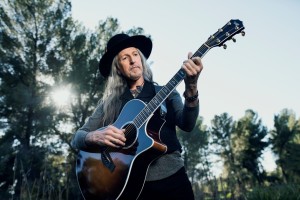
Founding member, and the only continuous member of the Doobie Brothers, Patrick Simmons was born October 19, 1948 in Aberdeen, WA. At age eight, he began playing guitar, and, over his parents’ objections, he played guitar throughout high school and college, and ran a small folk club.
In 1970, Simmons teamed up with guitarist/vocalist Tom Johnston, drummer John Hartman and bassist Dave Shogren, and the Doobie Brothers were born. His trademark accomplished fingering style guitar helps define the band’s sound, complimenting Tom Johnston’s rhythmic strumming. Simmons’ harmonies became one of the band’s trademarks. Although not the a primary writer for the Doobie Brothers, he contributed to all of their releases and penned “South City Midnight Lady,” the Top 40 hit, “Dependin’ on You,” and the band’s first Number One single, “Black Water.”
Simmons’ love of motorcycles led the band to perform at many Northern California Hell’s Angels events, building a fan base. (To this day, Simmons participates in endurance rides, including 2016’s Motorcycle Cannonball, from Atlantic City, NJ to San Diego, CA.)
After the band split in 1982, Simmons released a solo album, Arcade, with a Top 40 single, “So Wrong,” and a minor hit song, “Don’t Make Me Do It.” Simmons officially reunited with the Doobie Brothers as the vocalist/guitarist in 1989. Their comeback single, “The Doctor,” hit the pop Top Ten and topped the album rock charts that year.
Tom Johnston
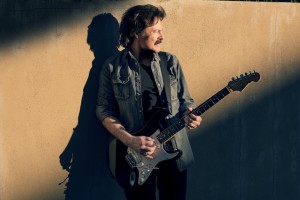
Tom Johnston was born August 15th, 1948 in Visalia, California. By the time he turned 14, he joined his first band, and played in a variety of bands, including a Mexican wedding band that played both soul and Mexican music. His interest in rhythm and blues led to his singing in a soul group from a neighboring town, and eventually his own blues band.
After moving to San José to finish college, he met the legendary Skip Spence (Quicksilver Messenger Service, Jefferson Airplane, Moby Grape), who then introduced Johnston to John Hartman. Johnston and Hartman soon formed the band Pud, which eventually morphed into the Doobie Brothers.
In 1975, Johnston was hospitalized at the beginning of a major tour, and was in and out of the band with health issues for several years, intermittently pursuing a solo career and touring with the band Border Patrol, which included fellow Doobie Brothers Patrick Simmons and Michael Hossack.
Johnston’s compositions put the Doobie Brothers on the map: “Listen to the Music,” “Jesus Is Just Alright,” “Long Train Runnin’” and “China Grove,” among many others. Johnston’s “Where Are You Tonight,” also appears on the Dirty Dancing sound track (1987).
“We’re really looking forward to this tour, because we are going to be playing for people in essence that we wouldn’t normally play for,” Johnston told Elmore. “That’s important, because it’s a time for you to get up and show what you can do, and what this band has always been able to do.”
John McFee
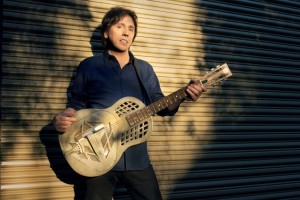
John McFee (born Sept. 9, 1950 in Santa Cruz, CA) joined the band in early 1979, replacing departing guitarist Jeff Baxter. “I’ve been there 37 years and I’m still the new guy,” he said.
McFee may have arrived later to the Doobie Brothers, but early to music: “When the Beatles came out, everyone wanted to have a band, so people said This McFee kid already knows how to play, so let’s get him in our band. I kind of snuck into rock ‘n roll. Then I started getting hired for sessions, when I was a young teenager. My mom had to sign my first recording contract.”
A member of Huey Lewis’ early band, Clover, he has also been featured as pedal steel guitarist with Huey Lewis and the News, McFee’s talents have also enhanced the recordings of Van Morrison, Boz Scaggs, Link Wray, Nick Lowe, John Michael Montgomery, Steve Miller, Chicago and Glen Campbell. McFee has played on many of Elvis Costello’s albums, and continues to perform live with Costello.
He started in the Doobies with a bang. First featured on the band’s ninth studio album, One Step Closer, McFee co-wrote the title track.
After the Doobie Brothers disbanded in late 1982, McFee and fellow Doobie drummer Keith Knudson formed Southern Pacific, which included ex-Creedence Clearwater Revival bassist Stu Cook and former Pablo Cruise vocalist David Jenkins. Their first single reached the Top Ten, and later songs written by McFee also cracked the Top Ten, including “New Shade of Blue” and “Honey I Dare You.” Southern Pacific was named New Country Group of the Year, and in 1989, two songs, “Reno Bound” and “Any Way The Wind Blows” were in Clint Eastwood’s film Pink Cadillac. Co-written by lead vocalist McFee, both songs reached Top Five on the country charts.
For the Doobies Brothers’ 1989 reunion album Cycles, McFee and Knudsen co-wrote a song called “Time is Here And Gone” with late Doobies’ percussionist Bobby LaKind.
Southern Pacific disbanded in 1993, and both McFee and Knudson rejoined the Doobie Brothers. McFee contributed as the lead vocalist and co-wrote the song “Angels of Madness”and co-wrote “Five Corners” with Patrick Simmons. When Tom Johnston’s throat ailment became too much, McFee acted as the relief lead vocalist for him.
McFee told us, “To my dad, there were two kinds of music, country and western. He wasn’t all that happy about me being in these rock and roll things.” We asked whether he didn’t like the music, or because he thought it would corrupt him? “Probably both,” McFee recalled. And then you got into a band called the Doobie Brothers. “Right! How prophetic. He saw it comin’.”
On longevity: “We have gotten so old that we have lost old-time members. In dinosaur bands that happens a lot.” But you’re alive and well. McFee laughed. “We have one foot in the tar pit.”
[Recidivist Billy Payne]
The newest old addition to the band is former Little Feat co-founder and keyboardist Bill Payne, considered by many to be the greatest American rock and blues pianist.
“It really is great having Billy Payne in the band, he’s a huge addition,” Tom Johnston said. “On top of being a good guy, all of a sudden you’ve got the sound coming out of the keyboard that you’ve never had before. Like Whoa! He takes off and he does one of his patented New Orleans-style intros. He does whatever comes to his mind at night, every night. It’s just a pleasure to hear.
John McFee recounted a little Payne/Doobie history: “China Grove” is called “China Grove” because of Billy’s part in the song. In the middle of this song, there’s a piano lick. In those days their scheduling was crazy enough, that they said, Let’s cut it, and we’ll figure out the lyrics later. So they brought in Billy to put some keyboards on it, and Billy did that lick and it and it clicked. Tommy said “That sounds Chinese.” So we wound up putting “China” in the title because of that piano part. Tommy swears that he didn’t know there was a town called China Grove near San Antonio, but there really is one. Tommy was tapping into something in the deeper consciousness.
* * * * *
Elmore Magazine: What are you listening to right now?
John McFee: Right now, the Doobie Brothers— the show we did last year that’s going to be airing this year on PBS for Music City Roots. We have Béla Fleck and Dan Tyminsk sitting in with us, and we play some songs that we’ve never performed in front of an audience before. Right now, I’m trying to finalize the mixes on it.
Patrick Simmons: I’ve been listening to local people, Willie K, a wonderful guitarist, and huge local star here [in Hawaii], and Keali’i Reichel.
Tom Johnston: That dates me. Mostly I listen to my playlist on iTunes, or jazz on Sirius Radio when I’m driving. I’ve been listening to to Billy McLaughlin and Don Ross, acoustic players—it’s good morning music and good to get going in the day. Later on, I might put on some Freddie King or B.B. King, Albert, any of the Kings, “the three kings,” as I call them. I don’t listen to tons and tons of music throughout the day, because I try to be making music—if not rehearsing, then writing. I’m writing for three hours with Bill Payne today, here in my studio. I’ve known him for many years and he’s now playing with this us, and that’s a gift.
EM: What was the first record you ever bought?
JMcF: A Buck Owens album that had “Tiger by the Tail” on it.
PS: Probably like a Ventures album, at 11 or 12. I bought a single when I was about 12, called “Lover Please” by Clyde McPhatter.
TJ: I want to say James Brown at the Apollo 1962. I would have been 15, I think. I probably have it out in the garage, sitting in a box. My brother brought home a lot of music. I listened to a whole lot of the stuff that he brought home and didn’t have to pay for it.
EM: What was the first instrument you played?
JMcF: The ukulele. I was so small, it’s the only I thing could get a hold of. I was maybe three , barely walking. My dad played, and I transitioned from that to all the other instruments. [EM: You play everything, and well.] I feel like I snuck in the back door of everything, but I’m not the best judge of how good my playing is.
PS: Piano. We inherited a piano from my grandmother. My sister played, and when I was about five, I was staying after school with an elderly lady who had a piano in her house, and she gave me piano lessons. I went over to the piano when I first met her, and was plinking around on it, and she said, “Do you know how to play? Would you like to learn?” I said, Sure!, so she gave me lessons for the better part of a year, and I’d play out of a songbook she had. That was pretty cool. It really whet my whistle. She’d give me a lesson, and then we’d sit around and listen to the radio. In those days, Liberace was on in the afternoon, and I’d hear somebody who really knew how to play. I learned the rudiments of music, the notes, the staff, how to count, etc.
TJ: Clarinet, as far as a proper instrument, and I wasn’t happy about at it. I was trying to wheel and deal with my parents, ’cause I wanted to play drums or trumpet, whichever made the most noise, and I didn’t win. I moved on to saxophone later. I wish I kept that up because I actually like sax.
EM: What brought you to the instrument you now play?
JMcF: I learned the chords on the uke, and the fingering is the same as the top four strings of a guitar, essentially, so transitioning to guitar was the first logical step. One of my idols when I was growing up was Joe Maphis, known as “The King of Strings,” and he would play fiddle and guitar and bass and mandolin. He was just an amazing musician and he made me think, “Gosh, if he can do it, it means it can be done. I should at least try to do that.” He inspired me to try different instruments, and it went from one thing to another. I was about seven or eight when I transitioned into guitar. When the Beatles came out I was 14 or so, and it wasn’t not long after that I was doing sessions.
PS: I really enjoyed learning piano from this lady, and then we moved to California, and my parents put me in with a terrible piano teacher. She was strict, and not very nice, not that great a player, not very inspiring—she was just trying to make a few bucks. I was wasn’t inspired and was pulling away from it, but I went to my buddy’s house across the street, and in his bedroom I saw this guitar sitting in the corner, leaning up against the wall. I knew what it was, but I’d never seen a real guitar, and it was magnetic for me. I thought it was such a beautiful instrument. I asked him, “Can I touch it?” He sat me down and said, “Here’s how you hold it, and strum it,” and taught me a chord that very first day, and that was it. Every day I would go to his house. His parents had a little country band. The guitar in his room was his mother’s, a straight arch-top acoustic, and his father had an electric guitar. I would go over there and I’d play his mother’s guitar, and he’d borrow his dad’s, and he would teach me chords and pretty soon he taught me songs, and then we became a little duo, on and off, and entertained at schools and entered talent contests. I was eight, he was nine. That was kind of the beginning of the rest of my life.
TJ: My dad played sax, but not professionally. I morphed into the sax in junior high at the suggestion of my music teacher. I was playing clarinet, tenor and baritone sax in in junior high, which I thought was pretty hip. It was almost bigger than I was.
By then I was into guitar. I got into the guitar on my own, that was my rebellion instrument, ’cause I wasn’t too thrilled about being in the woodwind section. I bought an old harmony archtop from a friend for $12, and started figuring out how to make it work. I listened to people like Jimmy Reed, which was a good place to start because it wasn’t very complex, and I would figure it out by ear, and when it started sounding like it was supposed to, I figured I was making progress.
EM: Who would you like to write with that you haven’t?
JMcF: Paul McCartney of course. But Don Henley is a wonderful lyricist. Billy Joel is a really good songwriter. Stylistically it might seem like I’m crazy. I would have loved to have written with Merle Haggard, honestly, he was a great songwriter. Buck Owens is a great songwriter. There are a lot of different ways to write a good song. And none of them are easy.
PS: I love Paul McCartney, Bob Dylan. I write with anybody who wants to write. I’ve written songs with my wife, my son, Tommy Johnston, John McFee, Mike MacDonald, with our current bass player, John McCowan. I don’t dream of writing a song with anybody. It’s a fun process writing songs, and anyone can write a song, because a good song comes from the heart, a good song comes from your own experience. No matter how you try, you can’t get outside yourself.
TJ: Paul McCartney’s one of the best songwriters I’ve ever heard in my life, so he’s one. McCartney wrote song after song after song in a very short period of time, and all of them were really incredible songs. To make wonderful songs in that amount of time to me was just jaw dropping—really well-written, well-thought-out, great chords, great rhythmic structures and great lyrics, he had it all going on. I’m sure he had some duds like everybody does, but we didn’t get to hear them, so I go by what I know.
Stevie Wonder is another one I’d love to write with. Stevie Wonder was kind of a standout in a crowded R&B scene, where there were a lot of great singers and a lot of great writers, but he took it to a whole ’nother level. And he and McCartney did get together and wrote “Ebony and Ivory.”
Really, though, all these years of writing I have always written by myself. When we got in the studio, we would sit down with the guitar and come up with a way the song would go, chord changes, rhythm, feel, lyrics that kind of thing, and everybody would work on it all together in the studio. But as far as the actual writing of the song, I did that alone. “Without You” and “The Road Angel” were probably like that, though neither one is thought to be in the American lexicon of hits.
EM: What musician influenced you most?
JMcF: Joe Maphis, as far as inspiring me to be a multi-instrumentalist, and guys like Merle Travis and Chet Atkins and steel players like Buddy Emmons and Tom Brumley, violinists like Stephane Grappelli and Paul Warren. I’ll try to copy anybody, especially the really good guys—that’s challenging.
PS: I used to watch television a lot as a kid, and I loved watching Ozzie and Harriet, and Ricky Nelson would play music on the show. James Burton was his guitar player and could really play. So that was my first inclination that the guitar was just more than a backing instrument, it could be a featured solo instrument. So James Burton was one of the first. Later on, hearing Chuck Berry really inspired me, and then years later, Chet Atkins was kind of my idol. I loved all kinds of folk music, and got into fingerstyle guitar playing, and then I discovered folk blues: Reverend Gary Davis, and later on straight-ahead blues with B.B. King, Albert King, and Jorma Kaukonen. I still love Jorma, he’s still one of my favorites. Falling in love with the blues was with the Paul Butterfield Blues Band, I always loved that approach to the blues, and Elvin Bishop. I loved, and still love, Jerry Miller, who played in the band Moby Grape. He still plays, and has that rockabilly/jazz edge, that fat sound.
TJ: As far as the rhythm area, I think Bo Diddley had something to do with the way I play rhythm, that and the fact that I was playing acoustic a lot in college, and because I didn’t have a drummer, I started that rhythm style, that chica-shaboom-shaboom-shaboom style. As far as guitar playing and soloing goes, I have to give credit to three guys, the Kings: Albert, B.B. and Freddy. Albert was the most lyrical lead player, and I thought Freddy and B.B. were the best singers.
I’ve listened to jazz on and off for years, but I don’t try to play it , I just enjoy listening to it because it is pleasurable for me. I have a lot of respect for jazz musicians, because they are the schooled ones of the bunch. Not that there aren’t some in rock ‘n roll, but overall, jazz, pretty much all of them are, and I have a lot of admiration for the work that they put into it.
EM: What was the song or event that made you realize you wanted to be in music?
JMcF: Music was always my escape, where it didn’t matter what I looked like or who I was. I could create my own world. That’s what music meant to me. I never thought about having a career, it just happened. I wish I could say I had a plan, but I faked it.
When the Beatles came out, instead of playing music to entertain myself, all the sudden I was in bands, I found, Hey! Girls seem to like me better now! That was an incentive. Maybe that’s a little too honest. More recently, I was producing a record for John Cowan, and Rodney Crowell came in to sing on one of the songs, and Rodney actually said, “Let’s do it like back when we were just trying to impress the girls.” I said, “I know what you’re talking about.”
PS: When I met Tom [Johnston]. When I got in this band, I realized there was the possibility to make a life of it. But the “Aha moment” was the minute I picked up that guitar and started playing. That moment, as a kid, I saw that music can be my solace; no one can take that away from you. They can take away your job, they can take away your money, they can take away your success, but no one can take away your art.
TJ: Probably when we did our first album, we were in the studio, and then it started taking hold that we were actually recording, and I thought, “This is a big deal.” I’d say the first two albums really cemented that thing for me. Until that point, it was the way to make money,
I didn’t think of myself as a “musician” walking around with a label being a musician, I just played all the time, because I loved it. I played in bands in high school, and that morphed on into junior college, and I had a blues band, and played with a soul band, all black guys except me, and I played in countless other bands in high school, but at that point, it was just something to do, something that you did. I didn’t walk around saying “I’m a musician.”
EM: What made you feel successful for the first time? Like the first time you didn’t have to carry your own gear.
JMcF: For me it was a little shocking, I kind of felt a little guilty. Having someone else set up my gear for me felt a little strange. I was in a group called Clover [with Huey Lewis], back in the 1960s and we had roadies, and it was like, Wow! This is kind of luxurious. Do I deserve this? I have to say, it was kind of great.
Hearing your song on the radio was huge. I damn near got in a wreck pulling my car off to the side of the road. It was “Listen to the Music.” We’d never heard ourselves on a big station. Jesus! That’s us! I don’t believe this, right here on the radio! It was gratifying, but at the same time it was like- we’re actually up with the big guys. You’re being played along with Elton John and Loggins & Messina and whoever the heck else was big at that time. It was like a coming-of-age moment. I pulled the car over. I was in my beat-up old Volkswagen by myself, which was good ’cuz I would have scared the Hell out of anybody. I wrenched it over to the side of the road and just cranked it.
PS: When we got our record contract at Warner Brothers. We did our first tour, we went out on the road with Mother Earth, Tracy Nelson, and that was the first professional tour I’d ever been on where we had people to set things up. It was a great relief. I think I speak for all musicians when I say the act of getting to the club at 6 or 7 in in the afternoon, setting up your gear, coming back at 8 or 9 o’clock, playing three or four sets, and at 1:30 or 2 o’clock you are done, loading out, and by the time you load out it is 3 o’clock in the morning , you are carrying your stuff out and you are helping members of the band carry their stuff out and load up, and then go on home and sleep till noon, that’s hard work. I used drive home from shows, and I would be so tired, I would have to pull my car over to the side of the road and sleep for an hour or two just so I could get back home again.
I have had plenty of jobs where I work eight- or ten-hour days, and it’s fulfilling to have a job and make money at it, no matter what you were doing, but when you are doing something you love to do and making money at it, that’s the greatest gift you can have.
I dreamed of being a hippie, and then became one. You have a vision of yourself that is partly real and partly imagined, and almost all of what I have imagined has come true. I feel blessed, and I try to pass that along and to encourage people to follow their dreams.
TJ: It was a slow process, actually [laughs]. We were hauling stuff around up until Toulouse Street. We were touring in Winnebagos, and we had a couple of road guys, but we didn’t have “the crew” like we do now.
EM: Who would you like in your rock ‘n roll heaven band?
JMcF: For me, in music, there really is no such thing as the best. There’s a certain level beyond which it’s all just great, so let’s just start with that. Bass would definitely have to be Paul McCartney, he kind of wrote the book on rock ‘n roll. Nicky Hopkins on keyboards. I’d probably pick Jimi Hendrix, and it’s a tough call between Mitch Mitchell and John Bonham on drums. [EM: There are some bands who actually have two drummers in them.] JMcF: [laughs] No kidding! Is that right? There must be doobies involved [laughs].
I wouldn’t mind having John Lennon do some vocals, I love his voice, and the Everly Brothers, I love their voices. Now I’m already thinking of other bass players like Willie Weeks or James Jamerson. All these great bass players. Jimmy Hasslip, he’s unbelievable. Technically, I think he’s the best bass player alive. Oh my God. This is tricky, isn’t it? There’s been so many good people. I love Don Henley’s voice, let’s get Don in there, or Bryan Adams. I would definitely pick Huey Lewis on harmonica. Huey is such a frontman, and has such a big persona in that sense, that people forget what a good harmonica player he is. Horns? I would definitely pick Mark Russo, and I know I’m not supposed to take people from the Doobie Brothers, but he’s the best.
PS: George Harrison would be in the band, Hutch Hutchison from Bonnie Raitt’s band. My buddy here, Willie K, would be in the band– he’s a guitarist. Richie Hayward on drums. Horn player? John Coltrane. Paul Rodgers on vocals. Billy Payne on keyboards, I love Bill. Joe Sample’s a great keyboard player. Miles Davis in the horn section of course. It’s a weird band, but it’s good.
TJ: I saw Albert King at the Fillmore years ago, in ’67 or so, and he just did magical things with a guitar. I did watch him take a couple of his players over the hoops, and it didn’t look like a lot of fun, but he just killed it. Paul Butterfield, Eric Clapton, Hendrix, B.B.- of course, B.B.- and Freddy. As far as that many guitar players on stage, however, it would be a flipping nightmare. Horns, there’s two schools of thought here. There’s Tower of Power, who I got to know extremely well, still do. Tightest horn section I’ve ever heard in my life, anywhere. Stevie Wonder on vocals; I always appreciated his words, as well as his voice, and it would be great to have him on the stage. And you could throw James Brown in there for that matter.
On bass, Billy Cox, who played with Hendrix, was really amazing bass player, same could be said of James Jamerson, who played on a lot of the Motown stuff— I’m a huge fan. Drums, Mitch Mitchell, Buddy Miles– two different styles, but two incredible drummers. Mr. Bonham was a good drummer. That’s three different styles as far as you can get a part as you can get, actually, but they all brought it. Harmonica, Paul Butterfield would fit in there pretty well, or Little Walter, who played with Muddy Waters: James Cotton is another great harp player. Keyboards: Little Richard, Billy Preston, Paul McCartney. [EM: McCartney on keyboards?] Yeah… and everything else. A lot of these people don’t necessarily mesh.
EM: What’s your desert island CD?
JMcF: Maybe Rubber Soul by the Beatles. Maybe some of that has to do with the fact that I didn’t hear any rock ‘n roll until the Beatles came along, I’d only heard country music, so they were a huge, huge influence on me, at least psychologically.
PS: Just about any Tommy Emmanuel album, I mentioned I love Paul Butterfield, I love that first Paul Butterfield Blues Band album.
TJ: Alone Together by Dave Mason. I’m just pulling that out because it covers a heck of a lot. [EM: You’re not pulling that out because you’re going on tour together?] TJ: No, I’ve played that album to death. The same could be said about John Barleycorn by Traffic; I could listen to that forever.
The Doobie Brothers are currently out west! Check upcoming dates below, and head HERE for a full list:
8/27/2016 – Las Vegas, NV @ Mandalay Bay Events Center
8/30/2016 – Chula Vista, CA @ Sleep Train Amphitheatre
9/2/2016 – Wheatland, CA @ Toyota Amphitheater
9/4/2016 – San Francisco, CA @ AT&T Park


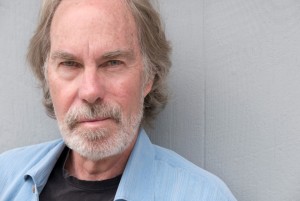
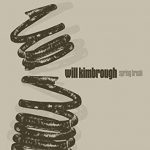
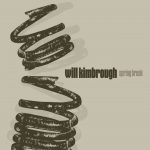
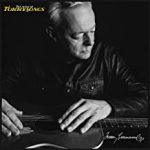

Great interview but the typos are a killer…